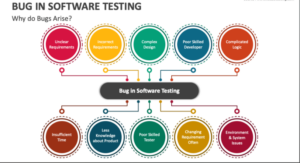Introduction
In today’s fast-paced digital world, businesses rely heavily on the flawless performance of software systems. A minor bug or glitch can disrupt operations, lead to customer dissatisfaction, and result in significant financial losses. As a result, ensuring the quality of software before it goes live has become a critical priority. This is where Quality Assurance as a Service (QAaaS) comes into play.
Quality Assurance (QA) as a Service refers to outsourcing software testing processes to external vendors who specialize in ensuring the performance, security, and reliability of software applications. These external vendors provide end-to-end QA solutions, leveraging their expertise, tools, and processes to ensure that a software product meets its requirements and performs as expected. This service model offers flexibility, scalability, and cost efficiency, making it an attractive option for businesses of all sizes.
In this blog post, we will explore what Quality Assurance as a Service (QAaaS) entails, why it’s becoming increasingly popular, and how it benefits organizations. We will also discuss how Software Quality Assurance Training prepares individuals to excel in this field and how certifications in QA can lead to rewarding careers. Let’s dive into the details.
Understanding Quality Assurance as a Service (QAaaS)
What is Quality Assurance (QA)?
Quality Assurance (QA) in software development is the systematic process of ensuring that a software application meets predefined standards and operates as intended. QA is not limited to finding bugs but also involves defining standards, setting processes, and improving the software development lifecycle (SDLC).
What is Quality Assurance as a Service (QAaaS)?
Quality Assurance as a Service (QAaaS) is an outsourcing model where companies partner with third-party vendors to handle all or part of their software testing needs. These vendors provide QA services remotely, which can include functional testing, performance testing, security testing, and more.
Key features of QAaaS:
- Scalability: Organizations can scale testing efforts up or down based on their needs without investing in expensive infrastructure.
- Expertise: QAaaS providers have teams of experienced testers with specialized skills in various testing domains, such as automation testing, security testing, and usability testing.
- Cost-Effectiveness: By outsourcing QA, companies save costs associated with hiring in-house teams, purchasing tools, and maintaining testing environments.
- On-Demand Access: QAaaS allows businesses to access testing services when needed, providing flexibility during peak development cycles.
The Evolution of Quality Assurance as a Service
The rise of Quality Assurance as a Service (QAaaS) can be traced to the rapid adoption of Agile and DevOps methodologies, which emphasize continuous integration, continuous deployment (CI/CD), and fast release cycles. Businesses require quick, reliable, and scalable testing solutions to keep up with these trends. Traditional QA methods often fall short due to their rigidity, high costs, and inability to scale.
Real-World Example: A Tech Company’s Shift to QAaaS
Consider a mid-sized tech company that frequently releases updates to its mobile app. The company struggled with ensuring the quality of each release, as their in-house team lacked expertise in mobile testing and couldn’t keep up with the release frequency. By leveraging QAaaS, the company accessed mobile testing specialists who ensured that every release was bug-free and optimized for performance. This partnership allowed the company to focus on development, reduce time-to-market, and improve the app’s user experience.
Benefits of Quality Assurance as a Service
1. Cost Efficiency One of the most significant advantages of QAaaS is cost reduction. Organizations save on infrastructure, testing tools, and hiring full-time QA personnel. With QAaaS, businesses pay for services as needed, which can lead to significant savings.
2. Access to Specialized Expertise QAaaS vendors provide access to experts proficient in various testing methodologies. Whether it’s automation, manual, performance, or security testing, businesses can leverage the specific skills needed at different stages of the software development lifecycle.
3. Scalability and Flexibility Businesses often experience fluctuating testing needs based on project timelines, release cycles, and updates. QAaaS offers the flexibility to scale testing efforts up or down as needed, ensuring that resources are used efficiently.
4. Faster Time-to-Market With a dedicated QAaaS team handling testing processes, businesses can focus on faster development and deployment. QAaaS teams work parallel to development teams, ensuring that testing doesn’t slow down the release cycle.
5. Continuous Integration Support QAaaS aligns perfectly with Continuous Integration (CI) and Continuous Deployment (CD) pipelines. Automated tests provided by QAaaS vendors can be integrated into the CI/CD process, enabling early detection of issues and ensuring that quality is maintained throughout the development process.

Quality Assurance vs. Quality Control
Before delving deeper into how QAaaS functions, it’s crucial to differentiate between Quality Assurance (QA) and Quality Control (QC). Both play essential roles in the software development lifecycle but have distinct functions.
- Quality Assurance focuses on process-oriented activities. It involves the establishment of processes and standards that ensure the software development process is followed correctly to produce a quality product.
- Quality Control is more product-oriented and involves the actual testing of software to identify defects. QA ensures the right processes are in place, while QC ensures the product meets quality standards.
How QAaaS Works: A Step-by-Step Breakdown
- Requirement Gathering and Analysis The QAaaS vendor collaborates with the client to understand the project’s requirements, including business objectives, target users, functionality, performance benchmarks, and security standards. This is crucial for defining the scope of testing.
- Test Planning Based on the requirements, the QAaaS team develops a comprehensive test plan outlining the types of tests (functional, performance, security, etc.), testing tools, timelines, and resources needed. The test plan is aligned with the client’s goals and timelines.
- Test Environment Setup The QAaaS provider creates the necessary testing environment, including hardware, software, and network configurations, either on-premise or in the cloud. Virtual environments or containerization may be used to simulate different user conditions.
- Test Execution The QAaaS team executes various test cases, which may include manual testing, automation testing, performance testing, and security testing. QAaaS providers often use sophisticated tools like Selenium, JUnit, and Jenkins to automate tests, speeding up the process.
- Defect Reporting and Management After test execution, the team logs defects into a defect management tool like JIRA or Bugzilla, providing detailed reports on the nature of the defects, severity, and recommended solutions. The development team can then address these issues promptly.
- Regression Testing As developers fix bugs, the QAaaS team performs regression testing to ensure that new code changes do not introduce new defects.
- Test Closure Once testing is complete, the QAaaS team prepares a test closure report that details the overall testing process, test results, defect resolution status, and key takeaways. This report helps in making informed decisions about releasing the software.
Online Software Quality Assurance Training: Preparing for the Future of QAaaS
With the growing adoption of QAaaS, the demand for skilled QA professionals is rising. To meet this demand, Software Quality Assurance training programs play a crucial role. Online courses, such as those offered by H2K Infosys, provide students with the necessary skills to excel in the dynamic field of quality assurance.
Key Features of Software Quality Assurance Training:
- Comprehensive Curriculum: Covers manual testing, automation testing, performance testing, and security testing.
- Real-World Projects: Hands-on experience with real-world projects simulating the QAaaS environment.
- Certifications: Upon completion, students can earn certifications such as Quality Assurance Tester Certification, which enhances employability.
- Industry-Relevant Tools: Training in tools like Selenium, JIRA, LoadRunner, and Jenkins.
- Job Placement Assistance: Many training programs offer job placement assistance, helping graduates land roles in leading QAaaS providers.
Practical Skills Gained:
- Test Automation: Learn to write and execute automated test cases using tools like Selenium and JUnit.
- Test Management: Become proficient in managing test cases, tracking defects, and generating reports using tools like JIRA and Bugzilla.
- Continuous Integration: Understand how QA fits into CI/CD pipelines using tools like Jenkins.
- Performance Testing: Develop the skills to assess a system’s performance under different loads using tools like LoadRunner.
Real-World Example: A Student’s Journey to Becoming a QA Expert
Consider a student who enrolled in an online Software Testing and Quality Assurance course. They initially had no experience in testing but, through the comprehensive training, learned everything from manual testing fundamentals to advanced automation techniques. After earning a Quality Assurance Tester Certification, they secured a role at a leading QAaaS firm, where they now manage automated testing processes for various clients.
Case Study: The Success of QAaaS in E-Commerce
To understand how QAaaS functions in the real world, consider the case of an e-commerce company that faced issues with the performance of its website during high-traffic periods, especially around the holiday season. After partnering with a QAaaS provider, the company:
- Identified and fixed performance bottlenecks through extensive load testing.
- Improved site reliability, reducing downtime during high-traffic periods by 30%.
- Enhanced user satisfaction by identifying and fixing critical bugs before they impacted customers.
Conclusion:
Quality Assurance as a Service (QAaaS) is revolutionizing the way businesses approach software testing. By outsourcing testing processes to expert vendors, companies can ensure high-quality software products, faster release cycles, and cost-effective solutions. The demand for skilled QA professionals will continue to grow as QAaaS becomes a standard part of the software development lifecycle.
If you’re considering a career in software testing, now is the time to enroll in a Software Quality Assurance training program. Whether you’re new to the field or looking to upskill, H2K Infosys offers comprehensive training that covers both manual and automated testing, industry-relevant tools, and job placement assistance. With Quality Assurance Tester Certification, you’ll be well-prepared to join the fast-growing field of QAaaS and help businesses deliver flawless software solutions.
Key Takeaways:
- Quality Assurance as a Service (QAaaS) is an outsourcing model that provides flexible, scalable, and cost-effective testing solutions.
- QAaaS is ideal for businesses looking to reduce costs, improve software quality, and accelerate time-to-market.
- QAaaS integrates seamlessly with Agile and DevOps methodologies, supporting Continuous Integration and Continuous Deployment pipelines.
- Software Quality Assurance Training equips individuals with the skills necessary to thrive in the QAaaS industry, offering hands-on experience with real-world tools and projects.
- With certifications in Quality Assurance, such as those offered by H2K Infosys, you can unlock career opportunities in the growing field of software testing.
Call to Action: Are you ready to start your journey toward becoming a Quality Assurance expert? Enroll in H2K Infosys‘ Software Quality Assurance Training today and take the first step toward a rewarding career in Quality Assurance as a Service. Explore our range of courses, benefit from real-world projects, and earn certifications that will set you apart in the competitive QA industry. Sign up now and unlock your potential in the world of QA.































One Response
Great post! I found the explanation of Quality Assurance as a Service (QAaaS) very insightful. It’s clear how QAaaS can streamline processes and improve efficiency by offering scalable and cost-effective solutions. This approach definitely seems to be the future of software quality management. Thanks for sharing!